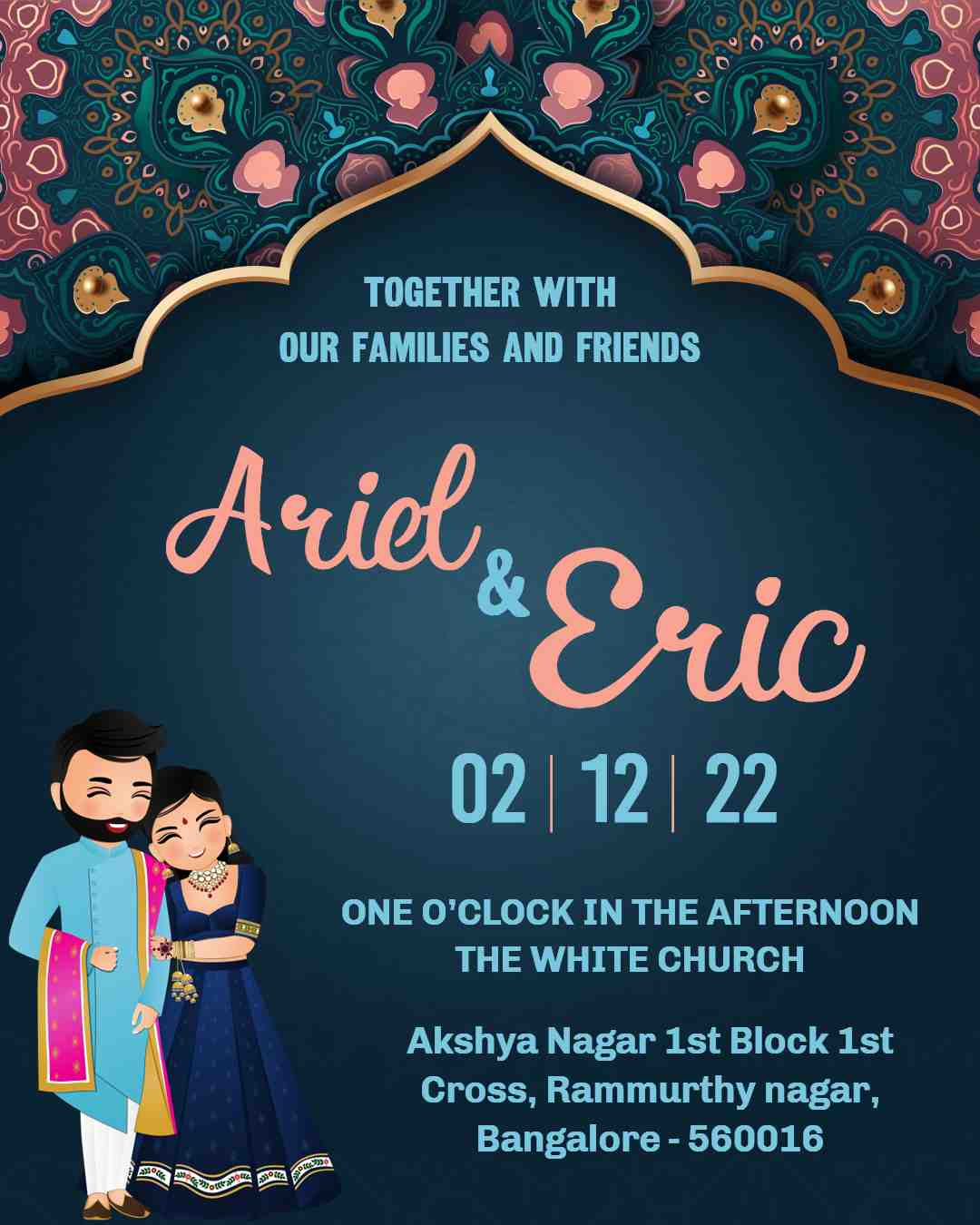Introduction
In the digital age, the concept of Islamic wedding invitation cards has evolved to blend traditional aesthetics with the efficiency of modern technology. These digital invitations serve as a virtual canvas where cultural heritage meets contemporary design, offering couples a dynamic platform to announce their union while honoring Islamic customs.
This article delves into the intricacies of digital Islamic wedding invitation cards, exploring their design elements, symbolic significance, customization options, and the evolving role in modern weddings.
Design Elements and Symbolism
Digital Islamic wedding invitation cards uphold traditional design elements that carry profound cultural and religious symbolism. Featuring elegant Arabic calligraphy, geometric patterns, and symbolic colors such as green, gold, and white, each design element is meticulously crafted to reflect the beauty and spirituality of Islamic artistry.
These elements not only enhance the visual appeal of the invitation but also convey blessings, peace, and prosperity upon the couple’s union. Fonts are carefully selected to complement the overall design, ensuring clarity and elegance in conveying the invitation’s message.
Customization and Personalization
One of the key advantages of digital Islamic wedding invitation cards lies in their versatility for customization. Couples can personalize their invitations by incorporating their names, wedding date, venue details, and personalized messages.
Some platforms even offer options to include verses from the Quran or Hadith, invoking blessings and seeking Allah’s guidance for the newlyweds. This customization feature allows each invitation to reflect the couple’s unique style and preferences, creating a personalized experience for their guests.
Digital Innovation and Accessibility
Digital Islamic wedding invitation cards leverage technological advancements to enhance accessibility and convenience. They can be distributed instantly via email, social media, or messaging apps, reaching guests globally with ease. This digital format not only simplifies the invitation process but also reduces paper waste, aligning with sustainable wedding practices.
Moreover, digital invitations often include interactive features such as RSVP options, event reminders, and links to wedding websites, facilitating seamless communication and guest engagement.
Ritual Significance and Community Connection
Despite their digital nature, Islamic wedding invitation cards retain the ritual significance of traditional printed invitations. They uphold etiquette and respect within Muslim communities, symbolizing unity and inviting loved ones to witness and celebrate the sacred union.
The act of sending and receiving these invitations remains a gesture of honor and hospitality, reflecting the values of faith and community integral to Islamic weddings. Through digital platforms, couples can extend their invitation beyond geographical boundaries, connecting with family and friends worldwide to share in the joyous occasion under Allah’s blessings.
Conclusion
In conclusion, the digital Islamic wedding invitation card represents a harmonious convergence of tradition and modernity. By preserving the timeless elegance of Islamic art and embracing digital innovations, these invitations offer couples a meaningful way to announce their marriage while respecting cultural customs.
Whether through intricate calligraphy, symbolic colors, or personalized details, each digital invitation card narrates a unique story of love, faith, and unity within the context of Islamic traditions. As weddings continue to evolve in the digital era, these cards stand as a testament to the enduring values of respect, community, and celebration in Muslim culture.

